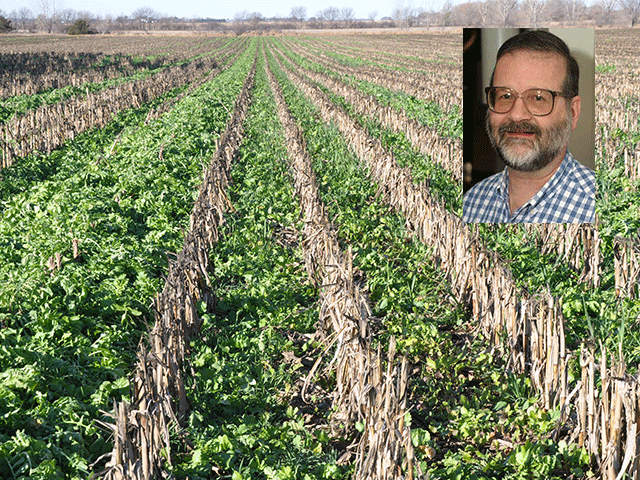A Checklist for Carbon Contracts
Some Considerations Before Enrolling in Carbon Programs
OMAHA (DTN) -- With a growing number of private carbon programs and pending legislation to provide some USDA oversight, the University of Nebraska's new Center for Agricultural Profitability offers some advice for farmers, ranchers and other landowners looking into the carbon market.
Dave Aiken, an agricultural law professor at the University of Nebraska-Lincoln Department of Agricultural Economics, said he's been fielding more questions from farmers looking into signing a carbon contract.
"They want to know which one is going to pay the most money and stuff like that. But there are also landlord-tenant issues that have come up," Aiken said. "I want them to better understand it's kind of the wild, Wild West out there, and at the moment, it's not a stable market."
One element on Aiken's checklist of questions is the complicated question of whether farmer tenants can sell carbon credits. He said tenants likely need long-term written contracts for leasing land that would match the terms of the carbon contract. Companies selling carbon contracts may need the landlord to be part of the contract as well.
Another problem with carbon markets currently is pricing a contract. There's no real transparency in carbon-market pricing, though producers generally say they are getting paid $10 to $15 per ton.
Then there are questions about just how much a third-party aggregator might take off the top of that contract. Aiken said there is a lot of speculation about just how high carbon prices could go, but those predictions are unlikely to come to fruition anytime soon. His own examination of carbon credits so far leans toward some skepticism about just how much money producers can expect to receive from a contract to sell carbon credits.
P[L1] D[0x0] M[300x250] OOP[F] ADUNIT[] T[]
"We don't have good ideas for what the prices are for carbon markets," Aiken said.
Picking up from webinars with producers who have carbon contracts, Aiken said he expects there will be different tiers of carbon markets based on just how thorough and detailed a producer is willing to get when it comes to counting carbon. Some of the best advice for producers is to simply start off with the basic practices that are going to trap carbon in the soil, such as no-till farming and planting cover crops.
"If they think the carbon contracts are something they want to do, this gives them something to think about," Aiken said.
Aiken noted most people also are waiting for the Growing Climate Solutions Act to become law. The bill would allow USDA to set standards for carbon markets and create a certification program. The bill also authorizes USDA to provide technical service to producers so they can qualify for a carbon contract. The bill passed the U.S. Senate 92-8 last month, but the House has not taken any action on the bill so far.
"Until that's in place, we really don't have standards," Aiken said. "It's really buyer beware, seller beware, everybody is kind of on their own."
A key point Aiken recommends is having an attorney go over the contract with you to understand all of the fine print, "because there is likely going to be some fine print, and if you just sign it so you could get the money, you could end up holding the bag."
Landowners should ask questions about obligations for data submitted to the company holding the carbon contract, as well as potential penalties if the land under carbon contract doesn't follow the prescribed practices or requirements to sequester carbon.
"You could be on the hook for some penalties, and the penalties might be more than you think, for example," Aiken said.
Another key question on Aiken's checklist involves what happens if a producer doesn't get paid by the company. Producers and their attorneys need to analyze what happens to the contract if the company that bought the carbon credits falls into financial distress such as bankruptcy. Secured creditors such as lenders would get paid before farmers and ranchers with contracts, but there could be a costly legal battle over the carbon contracts.
For the checklist and more ag carbon resources from the Center for Agricultural Profitability, visit
Chris Clayton can be reached at Chris.Clayton@dtn.com
Follow him on Twitter @ChrisClaytonDTN
(c) Copyright 2021 DTN, LLC. All rights reserved.




